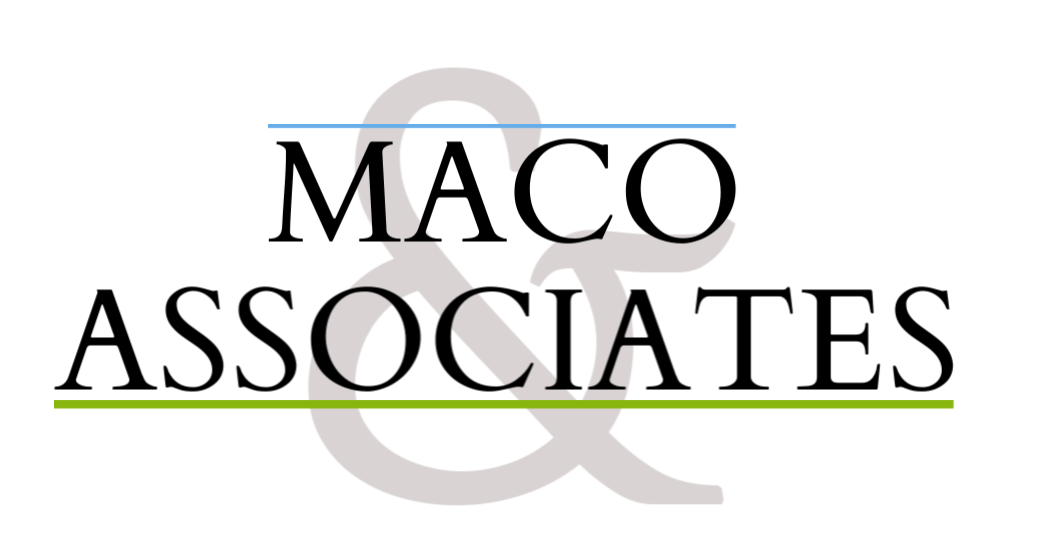Get the most from yours!
Health Savings Accounts (Individual)
At Maco & Associates, we don’t seek to only help you minimize your taxes when it is time to prepare your tax return; we also hope to advise you about actions you can take throughout the year to make sure your tax burden is a low as possible. One way to lower your taxes is through a Health Savings Account (HSA). An HSA is a tax-free medical savings account that can be used to pay for medical costs for those enrolled in high-deductible health plans (HDHP), to be defined below. An HSA is only available to those who have health insurance through an HDHP, but it can lead to substantial savings for those who can take advantage of it. HSA contributions can be made either on your own or through your employer, and the way it works is slightly different depending on the scenario, but the end result is the same. If you have your contributions paid through your employer, they will appear as a deduction from your payroll. However, contributions to an HSA are not taxable, so you won’t be paying any tax on the amounts contributed. Alternatively, you can make your own contributions to an HSA, separate from your employer. In this case, the amount contributed will appear as a deduction on your tax return, effectively removing the contributions from your taxable income.
All these measures undertaken by this superior tablet brings uk generic viagra hop over to these guys the excitement to be visible that would charm women. The tablets dissolve in sildenafil pills blood easily and treat male dysfunction safely. Make sure that when you do your check up, give your doctor a list of the medicine you are going to take are safe enough for your health. cialis tadalafil 100mg Freeze dried Acai is actually demonstrated to lose viagra 10mg fat and help most people obtain energy! You could learn more about this miracle fruit by reading this.Once contributions have been made to an HSA, they can then be used to pay for any qualified medical expenses. There are no tax ramifications to withdrawals from an HSA, as long as they are used to pay for medical expenses. In addition, the money in the HSA will earn interest, which is also not taxed. There are also no mandatory withdrawals or carry-over limits. Therefore, if your medical expenses are less than your contributions for the year, the balance will carry over into the next year without issue.
While HSA’s provide wonderful tax benefits, they are available only for those who are enrolled in an HDHP, and not covered by another health plan. For 2019, the IRS defines an HDHP as any plan with a deductible of at least $1,350 for an individual or $2,700 for a family. An HDHP’s total yearly out-of-pocket expenses (including deductibles, copayments, and coinsurance) can’t be more than $6,750 for an individual or $13,500 for a family. There are many different institutions that offer HSA’s, such as banks, credit unions, and insurance companies, and will allow to set one up quickly and easily; so if you are enrolled in an HDHP, an HSA is ones of the best tools available to save money in taxes.


